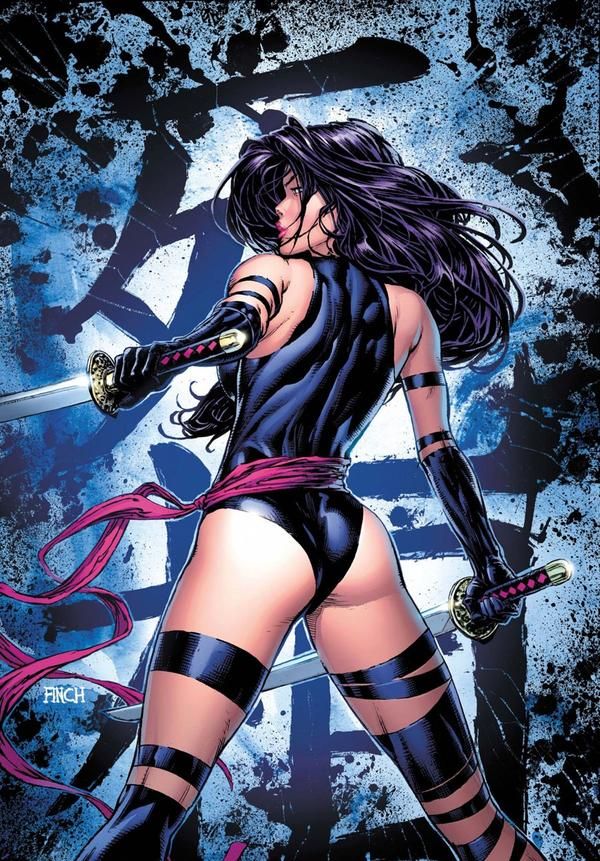Before we start this review, I have to admit: I have a soft spot for Psylocke. Back when I first got into comics off the back of the X-Men cartoon, Psylocke was this mysterious X-Man character who wasn't in the cartoon, and I thought that made her special. The reality, of course, is that a scantily-clad continuity-muddled British ninja with a redundant power set didn't really fit into the cartoon, but I was young and didn't notice that. So, bias acknowledged, let me tell you: I enjoyed this comic.
It's not a huge surprise. I'm the target audience, after all. The remit for the series, we've been told, was "remind people why Psylocke is cool" and Yost has certainly had his best stab at that. The book opens with Psylocke in full, Claremontian "Action Junkie" mode, riding a motorbike with Dazzler in the kind of scene that offers a slight and subtle nod to the characters' past together. That, friends, is how I like to see continuity used -- in a way that enhances a story when you know it, but doesn't detract from it if you don't.
Building a Psylocke-specific story is difficult, and so Yost builds on the saner elements of her muddled past to create a story that is uniquely about her. It features Kwannon, Matsu'o Tsurayaba and the "original" body of the Elizabeth Braddock, but skips over things like her "Crimson Dawn" powers and her recent membership of the Exiles. At its heart, this is a story about revenge and rediscovery that relies on a certain familiarity with the character's past, but it is possible for readers without that knowledge to ease into the story, since it also works as an epilogue to the events of the recent Uncanny X-Men storyline, "Sisterhood."
Although there is an element of gratuitousness to the artwork (and how could there not be, given the costume Psylocke wears?) artist Harvey Tolibao does keep a tighter rein on things than others might. There are solid storytelling fundamentals, plenty of dynamic images, and the close-ups focus on manga-esque depictions of her powers and facial expressions, rather than the more salacious elements of the character.
There's a nagging feeling in me that this story, as intriguing as I find it, will probably be deeply uninteresting to people who aren't already invested in the character. That said, it's been a while since Psylocke had much of the spotlight, and even longer since she did so in a way as well-written as this. I, and the planet's other five Psylocke fans, welcome it.

